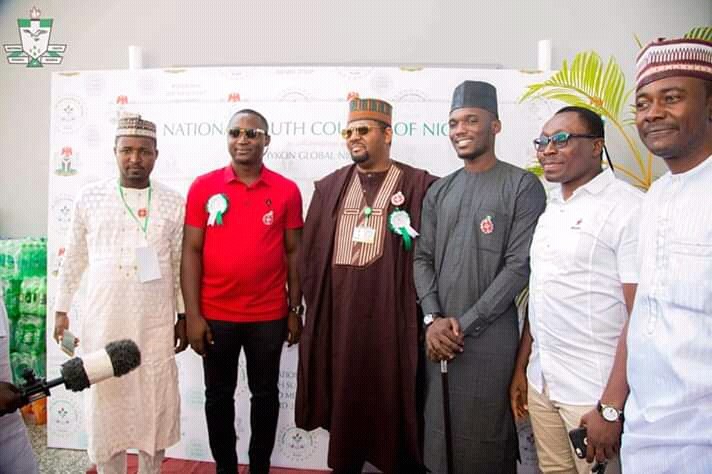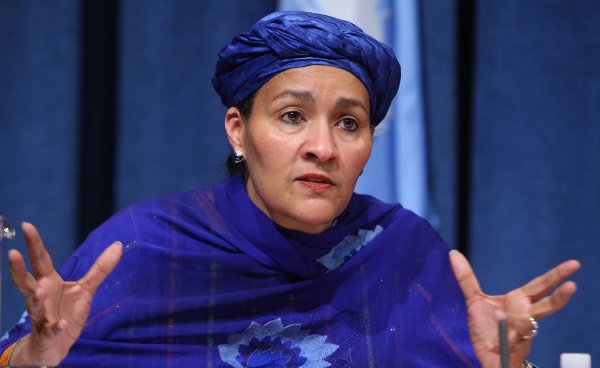
The National Youth Council of Nigeria (NYCN) has set 2023 as deadline for old politicians to retire from politics and give room to younger ones.
The Council urged the old politicians to rather give room to their children and grandchildren to participate in elections.
The Deputy President of NYCN, Amb. Innocent Nduanya, gave the advice in an interview which held at the ongoing National Youth and Merit award summit in Abuja.
Nduanya noted that money politics was the major challenge facing the nation and the menace had prevented the youths who make up to 80 per cent of the population from active politics.
He added that the high cost of nomination forms, campaigns and most recently, the problem of vote buying have further compound the problems of the youths.
Nduanya said that NYCN under the leadership of their President Bello Shagari has set up machineries capable of changing the current trend and narratives in the country.
“NYCN has embark on a campaign to sensitise and encouraging the youths to consider themselves as critical stakeholders in governance of the country and they should therefore contest all elective positions.
“The council would provide the necessary support and logistics to the electorate in favour of any youth aspirant; we cannot afford to be left out from the global trend where youths are taking over leadership positions in their respective countries.
“If the major political parties continue to gang up and deny qualified youths from contesting on their platforms by way of imposing exorbitant nomination fee, then NYCN may register a political party to provide an alternative platform for the teeming youths to achieve their ambition,’’ Nduanya said.
Meanwhile, UN Deputy Secretary-General Amina Mohammed has called on older generations to create space at the decision-making tables to meaningfully include young people.
Mohammed made the remarks at dinner with the Presidency and Thembekile Mandela Foundation to launch the ‘Leading Like Mandela Leadership Development Programme’ in Johannesburg.
She quoted late Nelson Mandela as saying: ‘Young people are capable, when aroused, of bringing down the towers of oppression and raising the banners of freedom’.
Mohammed told the youth: “Now is a good time to be inspired. Now is a good time to be fired up. To the older generations in the room – and I don’t exempt myself:
“It is our job to create space at the decision-making tables to meaningfully include young people and to help amplify their ideas and solutions, which can galvanise our journey towards a more prosperous, inclusive and sustainable planet”.
The UN deputy scribe said young people in and beyond Africa were the torch bearers of the Sustainable Development Goals.
“My message to you is: be proactive, positively disruptive and innovative; show the world what meaningful youth participation and leadership looks like as we strive to achieve the SDGs; constructively contribute to everything you do; learn from the lesson of the past to shape a better future”.
She noted that the world today was home to the largest generation of young people in history – 1.8 billion – adding, close to 90 per cent of them live in developing countries, and 600 million are girls.
According to her, however, they face formidable challenges and, too often, life-threatening risks that are disproportionately carried by girls and young women in many parts of the world.

“The older generation must lead by example by enabling the space for young people, especially women and girls, to build their capacities to grow and contribute.
“Even if that means stepping aside when necessary. Then we solve many problems,” she said.
She applauded the Thembekile Mandela Foundation, together with the United Nations through the UN Development Programme and the Africa Forum, for including intergenerational dialogue in the leadership framework.
Mohammed said it was through such forums that leadership models could be shaped, evaluated and redesigned, and leadership values could be instilled, and experiences shared from across several generations.
“If our goal is to transform our world, we must cultivate transformational leadership. Transformational leadership is about change in individuals and social systems alike.
“It connects people with themselves and others in bonds of purpose and mission. And it nurtures people to become leaders and role models themselves,” Mohammed said.













